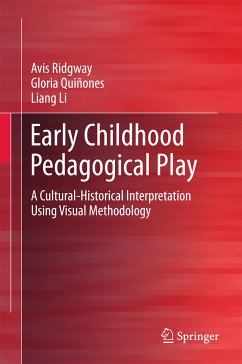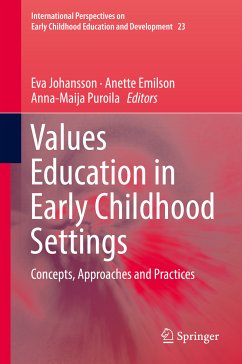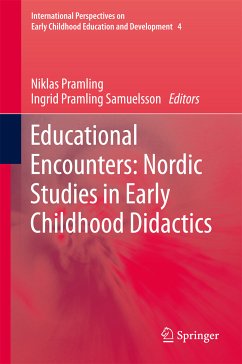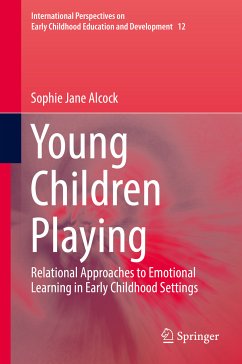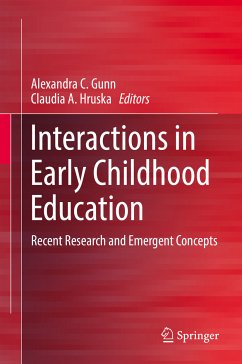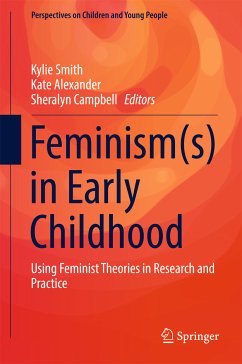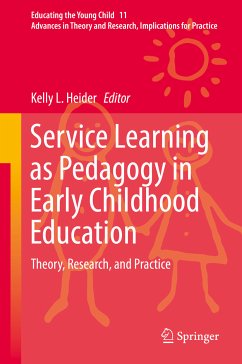
Nordic Social Pedagogical Approach to Early Years (eBook, PDF)
Versandkostenfrei!
Sofort per Download lieferbar
128,95 €
inkl. MwSt.
Weitere Ausgaben:

PAYBACK Punkte
64 °P sammeln!
This book studies the major characteristics of the social pedagogical approach to early childhood education and care. It does so by investigating the distinctive elements of the Nordic approach and tradition. The cultural, educational, and ideological structures and values within the Nordic tradition indicate a strong "social pedagogical" rather than "early education" emphasis. The Nordic tradition applies a social learning approach that emphasizes play, relationships and outdoor life, and presumes that learning takes place through children's participation in social interaction and processes. ...
This book studies the major characteristics of the social pedagogical approach to early childhood education and care. It does so by investigating the distinctive elements of the Nordic approach and tradition. The cultural, educational, and ideological structures and values within the Nordic tradition indicate a strong "social pedagogical" rather than "early education" emphasis. The Nordic tradition applies a social learning approach that emphasizes play, relationships and outdoor life, and presumes that learning takes place through children's participation in social interaction and processes. Set against this background, the book examines the characteristics of the pedagogue and the important features that develop through the Nordic approach. It compares children educated in the Nordic tradition with those educated in the French-English and Anglo-American tradition. It explores quality in relation to how children can enjoy childhood, and at the same time become able to actively participate in society and develop the social and cognitive skills and competences that individuals require to do well in society.
Dieser Download kann aus rechtlichen Gründen nur mit Rechnungsadresse in A, B, BG, CY, CZ, D, DK, EW, E, FIN, F, GR, HR, H, IRL, I, LT, L, LR, M, NL, PL, P, R, S, SLO, SK ausgeliefert werden.



